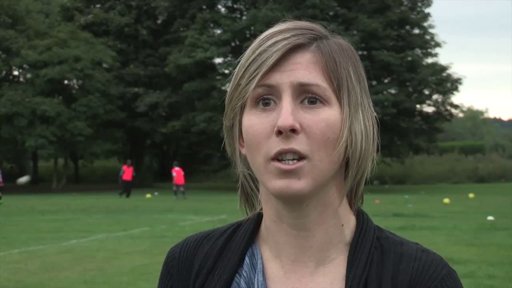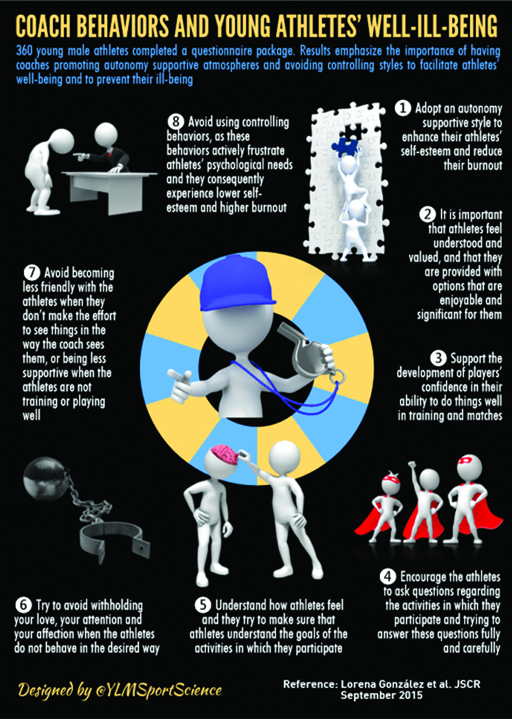3 Needs supportive coaching
You will now study a preventative strategy that is concerned with coaching behaviours and that is underpinned by a motivation perspective of burnout.
There is considerable research evidence that suggests coaching style has an impact on burnout (e.g. Isoard-Gautheur et al., 2012). This strategy re-educates coaches about the motivational processes that operate in their coaching, in particular how their communication (language, style and tone) and training organisation have an effect. In the research literature these strategies are known as needs supportive coaching or autonomy supportive coaching (Reinboth et al., 2004).
Activity 4 Applying needs supportive coaching
Watch this video which explains a project in which local UK coaches are trained in motivational processes to better appreciate needs supportive coaching (the term ‘empowering coaching’ is also sometimes used).
Whilst this is aimed at improving the enjoyment of all sport participants, how do you think the principles also influence burnout prevention? It may be useful for you to think back to the Hanson example and the case of Pendleton (cycling), which both featured in Session 5.

Transcript: Video 2
Discussion
Both the Hanson and Pendleton examples suggested that a limited perception of control and relatedness contributed to their burnout. The principle of addressing athletes’ autonomy needs is perhaps given most emphasis in the video. The way coaches behave and the extent to which they involve athletes (rather than direct them) can have an impact on participants’ motivation, particularly if there is a long period of exposure to an overly controlling coaching style. It is too simplistic to suggest that coaches (with the wrong approach) cause burnout, but if a controlling style coincides with other factors then the risks of athlete ill-being rise. ‘Ill-being’ (as opposed to ‘well-being’) may seem like a strange term. However, it is used in a research study you are about to examine, linking autonomy and burnout.
The strategy of teaching needs supportive coaching is increasingly recognised in the mainstream training of coaches. This closely links to the three principles of supporting athletes’ needs that you saw from Self-determination theory, and which you studied in relation to Pendleton’s case in Session 5. Take a moment to briefly revisit Pendleton’s case study [Tip: hold Ctrl and click a link to open it in a new tab. (Hide tip)] now (you may want to open it in a new tab or window).
Once you have been back to Session 5, examine the visual summary of a research study (Gonzalez et al., 2015) given in Figure 3. Look for information within the 8-points that reinforces your understanding of a needs supportive coaching strategy. As a reminder: needs supportive and autonomy supportive coaching mean the same thing.

This strategy focused on coaching behaviour. In the next section you will move on to consider the motivational climate that both parents and coaches can create: this is a prevention strategy aiming to change the way athletes judge themselves.
